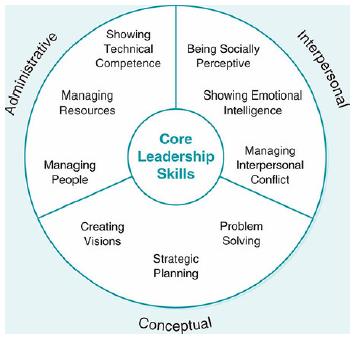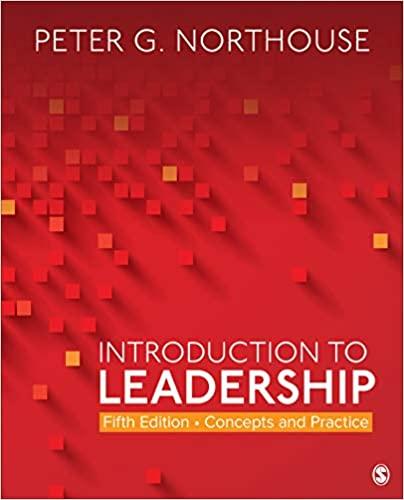Theodore Henderson was an unlikely candidate for the executive directors job at The Ross Center, a day
Question:
Theodore Henderson was an unlikely candidate for the executive director’s job at The Ross Center, a day shelter and organization that serves people who are hungry, lonely, or homeless 365 days a year.
Theo had grown up in a home with six siblings, and his parents barely made enough money to keep their family clothed and fed. Theo’s father was very critical of him, always telling Theo he wasn’t smart or strong and didn’t work hard enough. As a result, Theo was very driven, always trying to prove himself.
He would rarely ask for help or support from his parents, his teachers, or any other authority figure.
When Theo became a single dad at 17, his parents told him he had to move out. Theo worked odd jobs to support himself and his very young son, and the pair spent more than one occasion living in a homeless shelter. Through sheer determination, Theo was able to earn a GED and enrolled part-time in community college.
It took him five years, but Theo graduated with an associate’s degree in education. After he graduated, however, he became discouraged, knowing he needed a bachelor’s degree to become a teacher but he couldn’t afford more college. A classmate told him about The Ross Center, a day shelter and organization that was looking for someone to fill its new volunteer coordinator position. The Ross Center served up to 300 people each day, providing them with breakfast and lunch, laundry and shower facilities, and assistance in accessing social services, and its volunteer coordinator would not only recruit and manage volunteers, but also train them. The classmate suggested that with Theo’s education background, he might be a good fit.
When Theo interviewed for the job, the CEO asked him what he would do first as the volunteer coordinator. He recalled his own time being homeless and said, “As these folks who come here go about their day out on the streets, no one looks them in the eye or says hi to them. When they come here, every volunteer and staff member should do just that. They have to believe that anybody that walks through these doors is an important, lovable human being, and treat them that way.” He was hired.
Theo thrived in the job. He had a lot of autonomy, developing and implementing his own plans and procedures for volunteer recruitment and training. He especially liked sharing his own “street”
experiences with volunteers. The job required a lot of organization, matching volunteers with the needs of the organization and making sure all positions were staffed, but Theo quickly built a successful program and was well liked by volunteers and staff, many of whom admired his ability to get things done.
After a year, Linda (director of The Ross Center) told Theo to find and train his replacement because she wanted him to become the operations manager and oversee the shelter’s day-to-day operations. At first he balked and said, “I can’t do that. How am I going to run the facility and do human resource stuff?”
he asked. She responded, “You have been doing it. You got this.”...............
Questions
1. Based on the Model of Primary Leadership Skills (Figure 5.1), how would you describe Theo’s skills? In what skills is he strongest, and in what skills is he weakest?
2. What skills did Theo exhibit that made Linda think he would be a good operations manager the first time? What skills did he learn and develop that led her to think he would be a good CEO?
3. How do you think Theo’s emotional intelligence developed during his career?

Step by Step Answer:

Introduction To Leadership Concepts And Practice
ISBN: 9781544351599
5th Edition
Authors: Peter G Northouse





